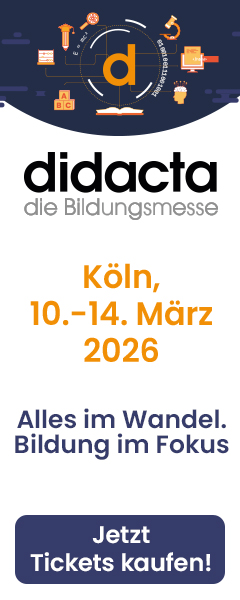Building the Knowledge Society
 Brussels (B), December 2006 - The European Union has started a new seven-billion euro action program to cover learning opportunities from childhood to old age. The Lifelong Learning Program will run from 2007-2013.
Brussels (B), December 2006 - The European Union has started a new seven-billion euro action program to cover learning opportunities from childhood to old age. The Lifelong Learning Program will run from 2007-2013.
 Brussels (B), December 2006 - The European Union has started a new action program to cover learning opportunities from childhood to old age.
Brussels (B), December 2006 - The European Union has started a new action program to cover learning opportunities from childhood to old age.
The Lifelong Learning Program will run from 2007-2013, and is the successor to the current Socrates, Leonardo da Vinci and eLearning programs. It has a budget of seven billion euros to support projects and activities that foster interchange, cooperation, and mobility between education and training systems within the EU so that they become a world quality reference.
Ján Figel', the European Commissioner for Education, Training, Culture, and Multilingualism, said, "Education and training are the cement that binds societies together in the face of economic and demographic change. I therefore welcome the decision of the European Parliament to join the Council in adopting the Lifelong Learning Program.
It is a tangible, "hands-on" result of policy cooperation in education and training between the Member States and the EU institutions. With it, it will be possible for individuals in schools, universities, and companies across Europe, and in all stages of life, to pursue all manners of stimulating learning opportunities by participating in Program-funded projects.
I am also pleased because it arrives twenty years after the flagship program for university education, Erasmus, was launched in 1987, emphasising the continuity and effectiveness of Community action in the field of education."
The Lifelong Learning Program is actually an over-arching structure that is built on four pillars, or sub-programs. Grants and subsidies will be awarded to projects under each of these that enhance the trans-national mobility of individuals, promote bilateral and multilateral partnerships, or improve quality in education and training systems through multilateral projects encouraging innovation, for example.
The four pillars are:
- The Comenius program (1,047 million euros) addresses the teaching and learning needs of all those in pre-school and school education up to the level of the end of upper secondary education, as well as the institutions and organisations providing such education;
- The Erasmus program (3,114 million euros) addresses the teaching and learning needs of all those in formal higher education, including trans-national student placements in enterprise, and the institutions and organisations providing or facilitating such education and training;
- The Leonardo da Vinci program (1,725 million euros) addresses the teaching and learning needs of all those in vocational education and training, including placement in enterprise of people other than students, as well as the institutions and organisations providing or facilitating such education and training;
- The Grundtvig program (358 million euros) addresses the teaching and learning needs of those in all forms of adult education, as well as the institutions and organisations providing or facilitating such education.
These four pillars are joined by what will be known as a "transversal program" (369 million euros), which will pursue the following four key activities:
- policy cooperation and innovation in lifelong learning;
- promotion of language learning;
- development of innovative ICT-based content, services, pedagogies, and practice for lifelong learning;
- dissemination and exploitation of results of actions supported under the Lifelong Learning Program and previous related programs, and also the exchange of good practice.
Finally, these actions will be complemented by the new Jean Monnet program (170 million euros), which supports institutions and activities in the field of European integration.
The implementation of the Lifelong Learning Program has been allocated a budget of 6,970 million euros for the period of the seven years from 1 January 2007 to the end of December, 2013.










